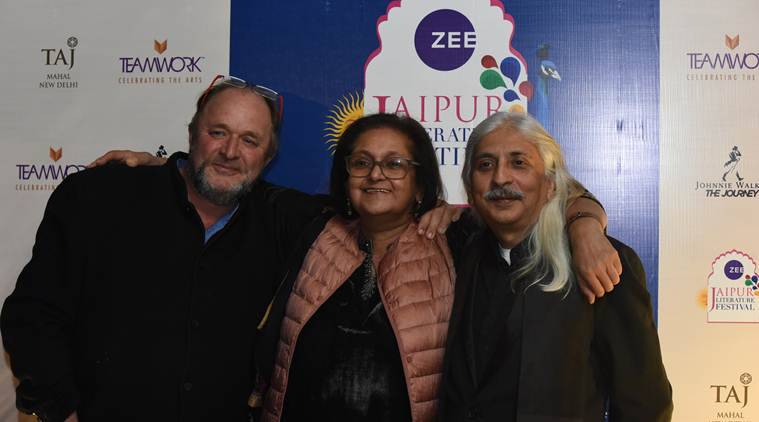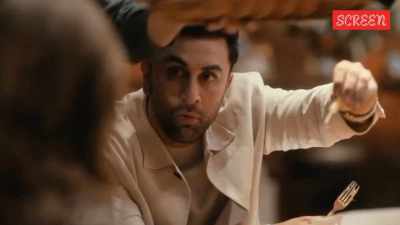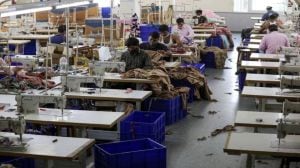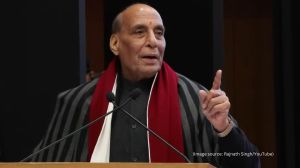‘If journalists write the first draft of history from the ground, writers do it from a distance’
Organisers Sanjoy Roy and writer Namita Gokhale on JLF LitFest’s new online series, ‘Brave New World’, and why writers will act as anchors in these times.
 JLF organisers (from left) William Dalrymple, Namita Gokhale and Sanjoy K Roy. (File Photo)
JLF organisers (from left) William Dalrymple, Namita Gokhale and Sanjoy K Roy. (File Photo)
In January, when Jaipur Literature Festival (JLF) was taking place, the Wuhan lockdown was announced owing to the coronavirus outbreak. Over the next two months, as the virus gripped the world and events were getting cancelled, JLF organisers wanted to keep the conversations going to make sense of things. So, they began an online series of conversations, two days a week, with writers from around the world. “Many writers whom we were trying to get to JLF for many years but were unable to, have, to our great joy, agreed to participate. For instance, Neil Gaiman, who was supposed to join us some years ago will finally get to speak on our digital platform. As will Robert Macfarlane,” says JLF co-founder-director Namita Gokhale.
The initial sessions will pertain to the pandemic, and later move on to science, math, the legal and constitutional, says Sanjoy K Roy, co-founder and managing director of Teamwork Arts, the company that organises the JLF. In an interview, Gokhale and Roy talk more about the series. Excerpts:
Tell us about taking JLF online in these times as the pandemic has sent the world into lockdown.
Roy: Edinburgh, London, Paris, one by one, every writers’ festival is coming to a grinding halt. And we thought: Ab kya karein? Initially we were putting out older JLF sessions, but soon realised we needed a very different digital-specific format, point-of-view, one-on-one sessions, directly talking to the viewers, taking questions.
Gokhale: These are uncharted times and uncharted territories. The pandemic has shown how vulnerable the patterns of our lives are. In this, the real and virtual worlds are increasingly merging, lines are blurred. But, I’m not
pessimistic. Every disruption also yields positive outcomes. In times of crises, writers act as anchors, providing a compass. If journalists write the first draft of history from the ground, writers do it from a distance, with a longer and deeper perspective that is thought-out, researched, using other sources as well as original ideas.
So, technology has been a boon?
Gokhale: It has provided a forum for writers and readers to interact. Even tech-challenged writers are learning to make videos. The publishing industry is currently in shock but I am certain it will emerge with strategic learnings and new outreaches. I’m excited and waiting, watching and learning, not just as a festival director but as a writer and reader, too.
Roy: Valuation apart, how will this pay out is what one has to wait and watch.
Why call the online series ‘Brave New World’?
Gokhale: It’s from Shakespeare’s play The Tempest. In Act V, scene I, Miranda says “O, brave new world”, to which Prospero replies, “’Tis new to thee”, interpret that as you may – perhaps at some level it is about hope and change and the cyclical nature of change.
Much later, Aldous Huxley wrote a dystopian novel with the same name (in 1931), about a future dystopia where humans are separated into rigid castes and controlled through technological and chemical means. But I was referring to Shakespeare when naming this series, which is really about change and understanding change, making sense of our world, not so much about the pandemic.
In these times, as the noose around freedom of speech and expression tightens, do you censor the content you put out?
Roy: We’ve never censored anything that we put out. At the same time, we are very conscious about what we put out. JLF and now JLF online is not a political and didactic platform. We are bringing people/writers who are interesting and are widely-read. For instance, advocate Abhinav Chandrachud’s work on the Bubonic plague of Bombay, how that led to Bal Gangadhar Tilak’s arrest and the drafting of the sedition law being enacted even now. It’s our responsibility to put out the knowledge to counter the overwhelming narrative of hatred and fake WhatsApp forwards.


- 01
- 02
- 03
- 04
- 05





























